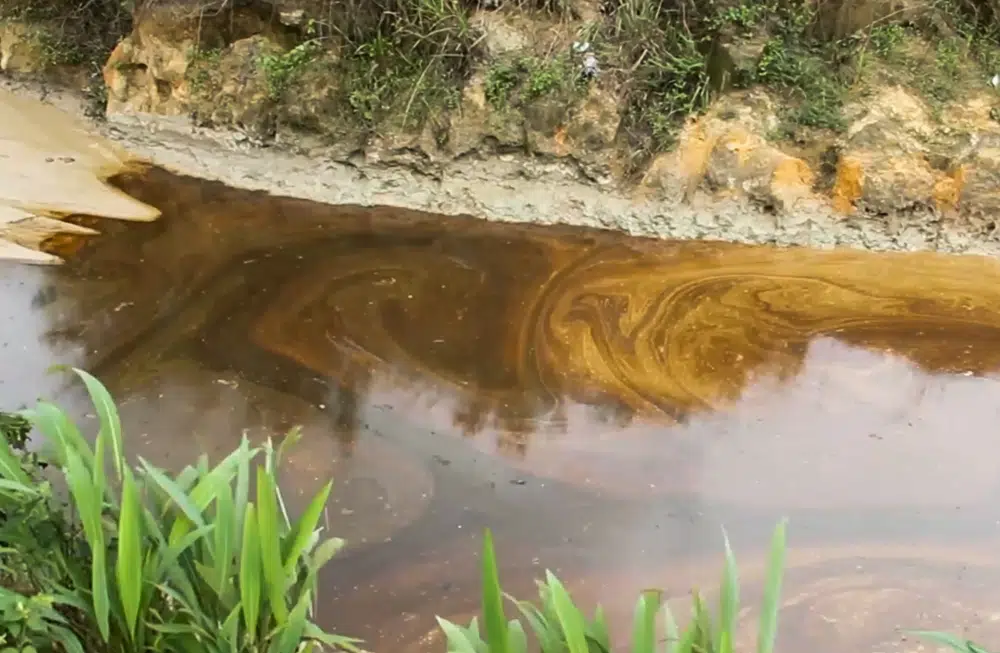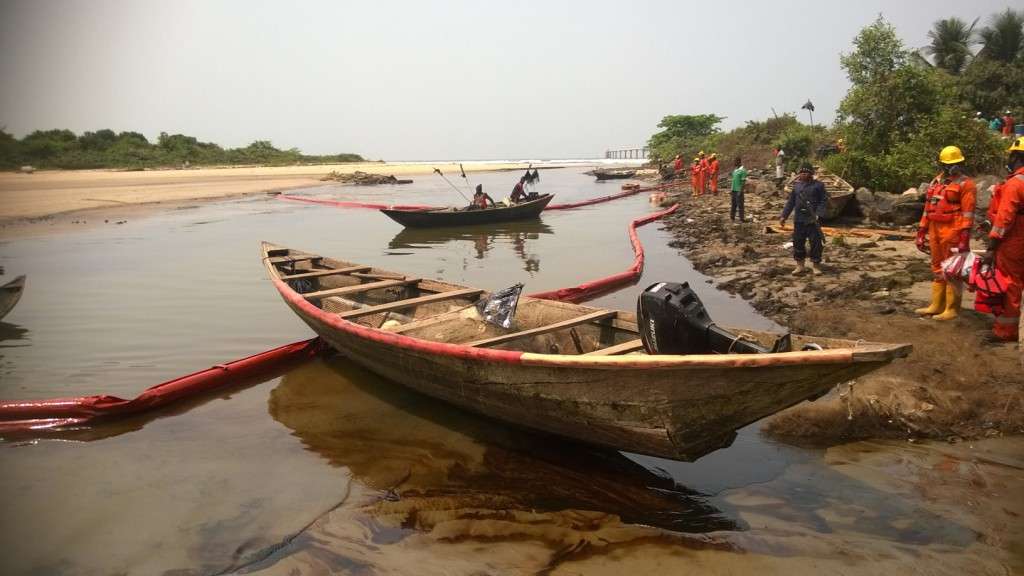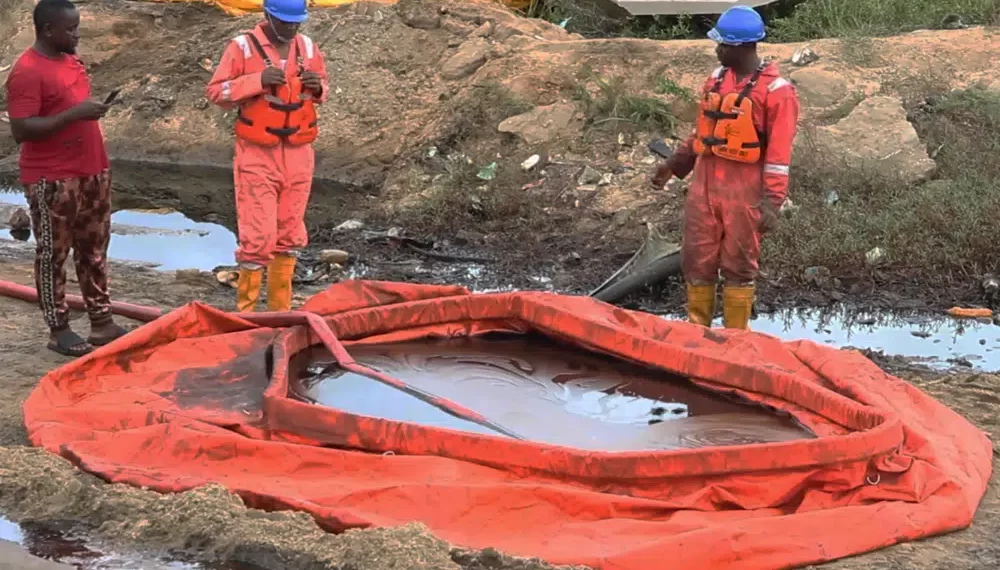The livelihoods of the agric and fish farmers in the Niger Delta have been adversely affected by a recent oil spill at a Shell facility in Nigeria, polluting the fields and a river. The Niger Delta has long suffered from environmental degradation, brought on by the oil industry.
According to National Oil Spill Detection and Response Agency (NOSDRA), the spill originated from Shell-operated Trans-Niger Pipeline, which runs through areas in the Eleme area of Ogoniland, a region where the London-based energy giant has faced decades of local oppositions to its drilling operations.

Though, the amount of oil that leaked has not been quantified, advocates have shared photos of contaminated farmland, water surfaces covered in oil sheens, and dead fish enmeshed in gummy muck.
According to the U.N. Environmental Program, leaks have been common in the area due to damage to pipelines and neglect, but activists refer to this one as a “major one.”
According to Fyneface Dumnamene, an environment activist, it is “one of the worst in the last 16 years in Ogoniland,” The spillage began on June 11th.
“It lasted for over a week, bursts into Okulu River, which adjoins other rivers and ultimately empties into the Atlantic Ocean, and affects several communities and displaces more than 300 fishers.”
Fyneface Dumnamene of the Youths and Environmental Advocacy Centre.
According to him, tides have transported oil sheens around 10 kilometers farther, to creeks close to Port Harcourt, the nation’s oil-producing hub.

Following violent rebellion from locals opposing the environmental degradation, which forced Shell to halt its operations in Ogoniland over 20 years ago, the Trans-Niger Pipeline continues to transport crude from other oil resources in other locations via the region’s towns to export ports.
Idris Musa, the Director General of NOSDRA, stated that although the leak has been stopped, treatment of the spillage aftereffects at farms, and the nearby Okulu River has slowed down. “Response has been delayed,” Musa said, blaming protesting residents, “but engagement is going on.”
Conflict Along The Niger Delta
The seeming impasse is as a result of disdain and old grudges in the riverine and oil-rich Niger Delta area, which primarily is home to ethnic minorities, who have accused the Nigerian government of marginalizing them.

The Niger Delta’s oil resources have been major source of income for the continent’s largest economy, but environmentalists have claimed that, pollution from that production has made it difficult for locals to access clean water, hindered their ability to cultivate and fish, and increased the likelihood of violent crime.
Also, people “are very angry because of the destruction of their livelihoods resulting of Shell’s obsolete equipment and are concerned the regulator and Shell will blame sabotage by the residents,” Dumnamene said.
However, oil firms frequently put the blame for spills on pipeline destructions by oil thieves, or irate young people in impacted neighborhoods.

According to London-based Shell, a collaborative investigation team made up of local officials, inhabitants of Ogoniland, and regulators, are attempting to determine the source and effects of the spill.
According to a company statement, “shell’s emergency response team has been activated, subject to safety requirements, to mobilize to the site to take actions that may be necessary for the safety of the environment, people, and equipment.”

Moreover, NOSDRA acknowledged a joint inquiry, but the source of the spillage, being either sabotage or technical difficulties are yet to be determined. Dumnamene predicted that, hundreds of farmers and fishermen who have lost their means of living, would demand environmental restoration first, followed by compensation.

The U.N. Environment Program conducted an independent investigation into Ogoniland at the insistence of the Nigerian government, and it issued a report in 2011, criticizing Shell and the central administration for 50 years of degradation and recommending a thorough billion-dollar remediation.
Though, the government proclaimed the cleanup in 2016, there is no indication that the area has been restored. According to the administration, community protests and suits filed by local activists have slowed progress.
READ ALSO:Cancer To Get A Vaccine























